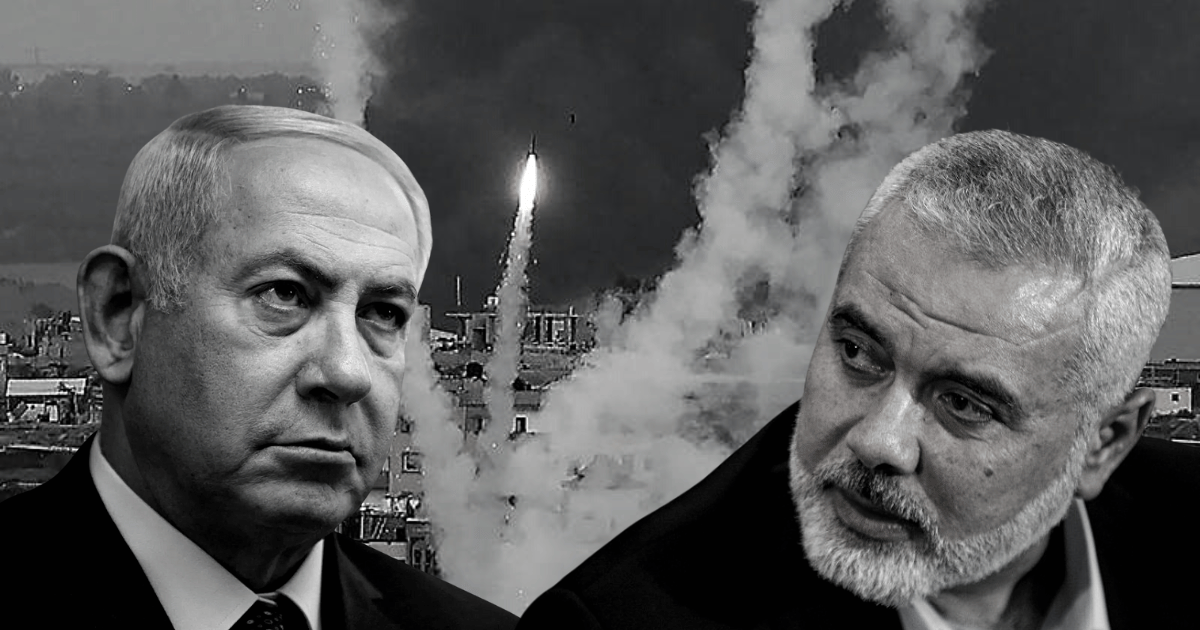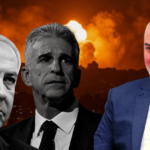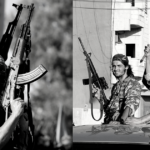In the intricate tapestry of the Israeli-Palestinian conflict, determining culpability is a challenging endeavor. The situation is fraught with historical, political, and socio-cultural complexities, making a clear demarcation of ‘right’ or ‘wrong’ a paradoxical pursuit. In this analysis, we aim to delve into the perspectives and actions of two significant players in the conflict: Israel and Hamas. By critically examining their positions, actions, and the impact on the ongoing strife, we strive to shed light on this enduring paradox.
The emotions might intensify upon understanding the perspectives and actions of Israel and Hamas. On one hand, there's a sense of empathy for Israel's security concerns and the trauma it has endured historically, but on the other hand, there's concern and sorrow for the impact of Israel's actions, especially in densely populated Palestinian areas.
Israel: A Nation in Defense
Historical Context and Statehood
Israel emerged from a historical and tumultuous background, shaped by the aftermath of World War II and the Holocaust. The international community, deeply moved by the atrocities committed during the Holocaust, supported the establishment of a Jewish homeland. In 1947, the United Nations partitioned the British Mandate of Palestine into Jewish and Arab states. Israel declared independence in 1948, igniting a series of conflicts with neighboring Arab countries.
Security Concerns and Actions
From Israel’s perspective, its actions are driven by the need to protect its citizens and ensure national security. Israel has faced continuous threats from various entities, including Hamas, whose avowed aim is the destruction of Israel. Throughout its history, Israel has faced numerous armed conflicts, prompting a firm stance on security measures, including blockades and military operations in response to attacks.
Israel and the Jewish American Perspective
Diverse Views Among Jewish Americans
Jewish Americans, a significant group with varied perspectives, are deeply connected to the Israeli-Palestinian conflict. For 45% of them, caring about Israel is intrinsic to their identity, while 37% consider it important, though not essential. Interestingly, within this community, opinions on the conflict’s resolution vary considerably. Most believe in the possibility of peaceful coexistence between Israel and an independent Palestinian state, though there are stark differences of opinion among religious and political affiliations. Orthodox Jews tend to be more skeptical of peaceful coexistence, while Jewish Democrats lean towards the belief in peaceful cohabitation.
Skepticism and Views on Peace Efforts
The skepticism extends to the perception of peace efforts. Only one-third of U.S. Jews believe that the Israeli government is making sincere efforts towards a peace settlement, and merely 12% think the same about the Palestinian leadership. Amidst this, many Palestinian rights supporters in the United States express horror at the ongoing violence and advocate for peace. They criticize Israel for alleged actions amounting to “ethnic cleansing,” emphasizing the need for dialogue and peaceful resolution.
Furthermore, criticisms have been levied at Israel for the proportionality of its actions and the alleged use of excessive force, particularly in densely populated Palestinian areas. Accusations of human rights violations, including the targeting of civilians and the disproportionate impact on the Palestinian populace, have raised concerns in the international community.
Perception of Hamas and Conflict Resolution
Israel views Hamas as a terrorist organization and an obstacle to peaceful resolution. Hamas’s refusal to recognize Israel’s right to exist and its past involvement in attacks on Israeli civilians have led Israel to be cautious and apprehensive about engaging in negotiations with the group. From Israel’s perspective, Hamas’s militant stance and actions impede progress towards a negotiated settlement and lasting peace.
Hamas: An Islamist Struggle for Liberation
Historical and Ideological Foundations
Hamas, formed in the late 1980s, is a Palestinian Islamist movement that emerged as an offshoot of the Muslim Brotherhood who creation was aided by Israel. Its ideology intertwines Palestinian nationalism with Islamic principles, advocating for the liberation of all Palestinian territories, including present-day Israel, and rejecting any recognition of Israel’s legitimacy.
Armed Resistance and Governance
Hamas’s primary means of resistance has been armed struggle against Israel. Its armed wing has conducted attacks against Israeli civilians and military personnel, aiming to challenge Israel’s perceived occupation and assert Palestinian sovereignty. Additionally, Hamas has gained a level of governance in the Gaza Strip, where it provides social services and runs the local administration.
However, Hamas’s reliance on armed struggle has drawn criticism for its impact on civilians and for hindering peaceful dialogue. The group’s refusal to recognize Israel and engage in diplomatic negotiations has contributed to the ongoing cycle of violence and impeded the peace process.
Perspectives on Peace and Coexistence
Hamas’s ideological resistance to a two-state solution and its rejection of diplomatic engagement with Israel present significant obstacles to the achievement of peace in the region. While some Palestinians support Hamas’s resistance efforts and view the organization as a legitimate resistance movement, others believe that a shift in approach toward dialogue and diplomacy is necessary to reach a peaceful resolution.
A Glimpse into Palestinian Perspectives
1. Targeting of Residential Areas in Gaza
Many Palestinians contend that Israel has been targeting residential areas in Gaza, resulting in the destruction of entire neighborhoods. The toll on civilian lives and infrastructure has been immense. According to reports, at least 338,000 Palestinians have been displaced from their homes, seeking refuge elsewhere. Tragically, this conflict has claimed the lives of at least 3,000 Israelis, escalating the distress caused by the ongoing conflict.
2. The Quest for a Viable Solution
Palestinians express skepticism regarding the possibility of a two-state solution. Instead, a significant majority lean towards reclaiming all of historic Palestine, encompassing pre-1967 Israel. A one-state solution where Arabs and Jews enjoy equal rights is considered a viable alternative. This showcases the depth of aspirations and desires among Palestinians for a just and comprehensive resolution.
3. Divergence on Conflict Resolution
Palestinians remain divided on how to address the conflict. Some advocate for a negotiated two-state solution that would mark a fresh beginning in Palestinian history, fostering peace and stability. Conversely, others believe that the conflict should persist until the liberation of all of historic Palestine. These divergent opinions underline the complexity and differing priorities within the Palestinian population.
4. Hamas and Its Ideological Standpoint
Hamas, an influential governing body in Palestine, is seen by many as pursuing the objective of claiming the “promised land” for themselves. This approach often involves employing any means necessary, which has been a cause for concern and condemnation within the international community.
5. Allegations of Israeli Actions
Palestinians criticize Israel for allegedly cutting off essential resources such as water, food, and electricity to Gaza since the onset of the conflict. This is viewed by Palestinians as a form of “ethnic cleansing,” further intensifying grievances and adding layers of complexity to the conflict.
It is crucial to acknowledge the diverse and intricate nature of Palestinian opinions on the Israeli-Palestinian conflict. The perspectives presented here offer a glimpse into the array of thoughts and feelings within the Palestinian community. However, it's important to recognize that these viewpoints cannot be entirely encapsulated by a few statements. The complexity of the conflict underscores the necessity for an inclusive dialogue and negotiation process to attain a sustainable and just resolution for both parties involved.
Diverse Approaches from International Stakeholders
International stakeholders, including the United States, the European Union, and the United Nations, are engaged in efforts to resolve the conflict. However, a common thread is the lack of a unified approach. The United States traditionally advocates for a diplomatic solution and supports Israel, yet faces challenges in providing effective leadership. The EU, a major donor to the Palestinian Authority, struggles to maximize its influence, while the UN emphasizes addressing the power imbalance in the peace process. The need for a long-term truce in Gaza and calls for conflict resolution underscore their diverse efforts.
A Bright Side
In attempting to unravel the paradox of the Israeli-Palestinian conflict, it is evident that both Israel and Hamas have contributed to the perpetuation of violence and the lack of a peaceful resolution. Israel, in its pursuit of security and defense of its citizens, has faced accusations of disproportionate force and human rights violations. On the other hand, Hamas’s ideological resistance and armed struggle have impeded diplomatic progress and contributed to a vicious cycle of violence.
The Necessity of Dialogue and Compromise
Breaking this cycle requires a paradigm shift from both parties. It demands a willingness to engage in meaningful dialogue and compromise, acknowledging the rights and grievances of the other. For Israel, this means reassessing security measures to minimize civilian casualties and fostering an environment conducive to diplomatic negotiations. For Hamas, it necessitates recognizing Israel’s right to exist, renouncing violence, and engaging constructively in peaceful negotiations.
International Mediation and Peacebuilding
International stakeholders, such as the United States, the European Union, and the United Nations, must play a crucial role in mediating and facilitating peace talks. Their involvement should be geared towards creating an atmosphere of trust, urging both sides to come to the negotiation table, and fostering an environment conducive to a peaceful coexistence.
There's an acknowledgment of the suffering of Palestinians, their diverse opinions, and the challenging conditions they face. Amidst this emotional complexity, there's a glimmer of hope and a call for meaningful dialogue, compromise, and international mediation to finally bring about a peaceful resolution to this deeply entrenched and seemingly insurmountable conflict. The desire for a better future and a harmonious coexistence in the region is a beacon of hope amidst the darkness of this ongoing struggle.
Conclusion
The Israeli-Palestinian conflict remains deeply entrenched in history, politics, and ideology, creating a paradox where both Israel and Hamas harbor valid concerns and grievances. Breaking this paradox requires a concerted effort from all stakeholders, involving genuine dialogue, compromise, and a reevaluation of the strategies pursued thus far. Only through collaborative action and a commitment to peaceful resolution can this longstanding conflict be addressed, ultimately paving the way for a more harmonious future in the region.






